Closing the Outlander Season 4 premiere episode with “America the Beautiful” was bold. Nikki Gastineau shares why she applauds the choice to use the song.
O beautiful for spacious skies, for amber waves of grain
For purple mountain majesties, above the fruited plain
America, America, God shed His grace on thee
And crown thy good with brotherhood, from sea to shining sea
The piano playing against the scene of tranquility at the riverside camp was the first clue that something was amiss. And in the instant that it took for that thought to register, the chaos began.
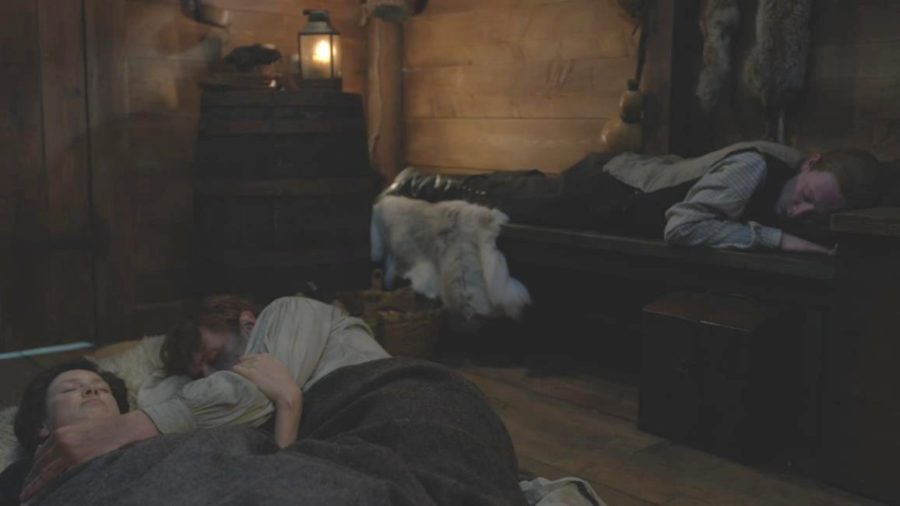
I got a bit of a late start on the Season 4 premiere of Outlander, but I had a chance to read the reactions of fellow fans hours before I watched the episode. So many were upset by the use of “America the Beautiful.” Others had never heard the song and wondered why it was chosen. Even with advance warning of how the final scene of the episode would play out, I was not fully prepared for the jarring site of it and for the emotional upheaval it caused.
“America the Beautiful” is a song that many Americans grew up singing in elementary school. Some may have started their day by singing the song in their classroom along with a recitation of the Pledge of Allegiance. The song has, at various times through history, even been championed as a replacement for our current national anthem. In short, Americans know and love this song. The Ray Charles version that was played on the episode just happens to be my favorite.
Katharine Lee Bates wrote the lyrics in 1893, but the song as we know it today was first published in 1910. The first verse was inspired by Ms. Bates’ visit to Pikes Peak in Colorado. She was, quite literally, in awe of the purple mountain’s majesty. The remaining verses speak, not to the physical beauty of our country, but to the ideals that make America great. The lyrics reference heroes, patriots, and gleaming alabaster cities. In the second verse there is an appeal for God to “mend thine every flaw”. Katherine Bates recognized that this country with all its promise and shimmer still needed help in becoming its best self.
“America the Beautiful” was penned 117 years after the signers of the Declaration of Independence proclaimed to the world that “all men are created equal” and 30 years after the Emancipation Proclamation freed hundreds of thousands of enslaved Africans who had long wondered why “all” didn’t apply to them. It would be 10 more years before all American citizens gained the right to vote.
Lynchings in the American South were commonplace through the 1950s, and records indicate that there were 4,400 lynchings of black people between 1877 and 1950. Until the Civil Rights amendment was passed in 1964, schools, restaurants, buses and businesses were segregated.
This brings me back to Outlander. When Claire described the “American Dream” and the waves of settlers to come, Jamie asked about the natives. Claire told him that they would eventually be removed from their ancestral homelands and forced to live on reservations. Jamie wondered aloud that “a dream for some can be a nightmare for others.” A few minutes earlier, in that lovely campfire scene, Claire worried about the tenuous nature of life and how easily everything could be taken away.
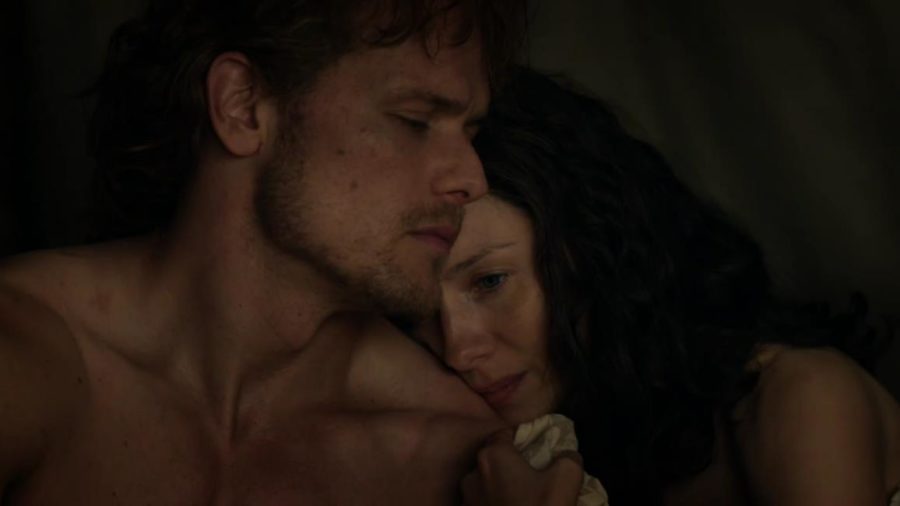
Hours later Stephen Bonnet comes crashing in, shattering the American Dream that Jamie and Claire had just started to build. And as Ray Charles, himself a fighter for civil rights, sings to us about the beauty of this great land, we are forced to watch the destruction of one group of dreams for the sake of others. The horror on Claire’s face and the lack of audible dialogue add to the sadness of this scene. It brought to mind Claire’s PTSD in the Season 2 “Prestonpans” episode. It also reminded me of the violence that occurs around me every single day that I don’t hear or witness.
Claire’s collapse on the floor after discovering that Bonnet left with Jamie’s ring recalled the gut-wrenching Season 2 opener. We don’t need to hear Claire scream this time. We already know what that sounds like. This time we just need to feel her torment. This feeling is compounded if we consider the thoughts that are likely swirling through Claire’s head. While we know that Jamie is alive, Claire has every reason to believe that he is dead (why would Bonnet leave him alive?) and Bonnet has just left with her only tangible link to him. Every fear that she had about losing Jamie has descended upon her as she watches the life leave her dear companion, Lesley, and she considers the loss of her love.

All the same can be said for the looks on Jamie’s face as he is beaten and left unable to defend those he loves, deprived of the very thing that drives his existence.
We see so much violence depicted on television and movies, even on Outlander, that we’ve become numb to it. Did you feel numb when you watched this scene? My guess is that you felt any number of emotions but you felt something. Whether it was anger over the use of this beloved song or sadness at the death and destruction, this combination of music and visuals made you sit up and take notice. If you watched this scene and felt confused or disoriented or if you cried (like me), then the song did its job.
America is beautiful. America is a land of promise, but that promise has not always been applied equally to America’s inhabitants. For all our beauty, we are scarred, and flawed, and we often find ourselves on the wrong side of history. To play this song, in a moment where new immigrants came to question the promise of America, and for it to be sung by an African-American man who grew up in a south that didn’t always uphold its end of the bargain was a beautiful, jolting, juxtaposition and it shook me to my core. Good on you, Outlander writers. Good on you.
What did you think about the use of “America the Beautiful” in the episode? Did it work for you?
Did you dislike it? We want to hear from you.


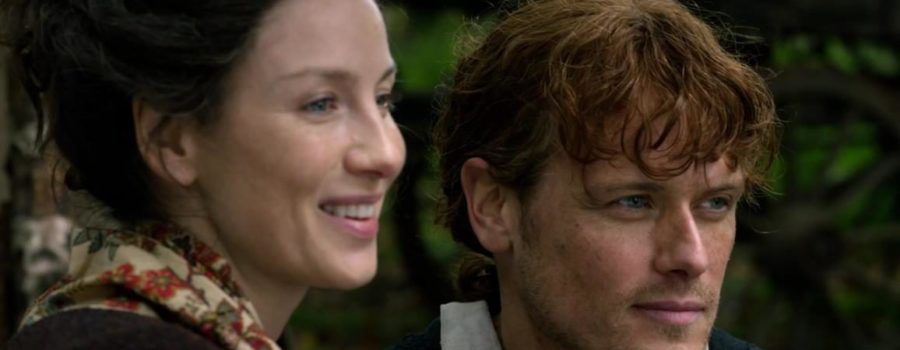



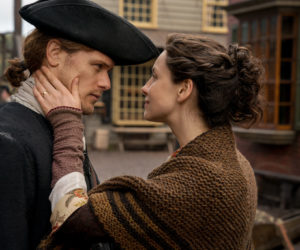
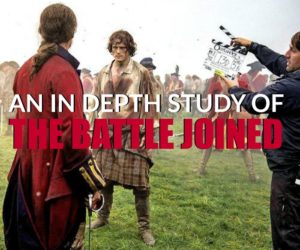
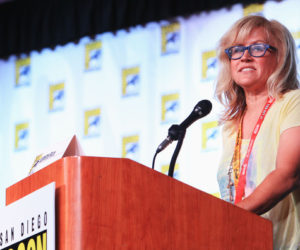
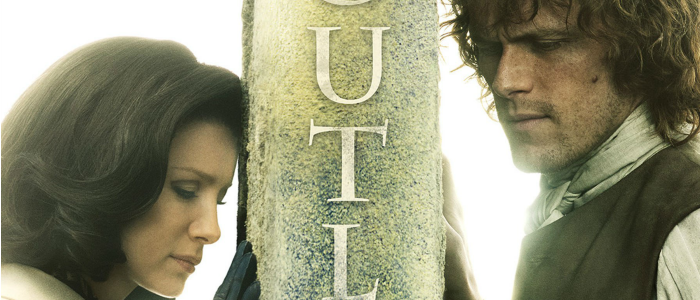





144 Comments
Leave your reply.